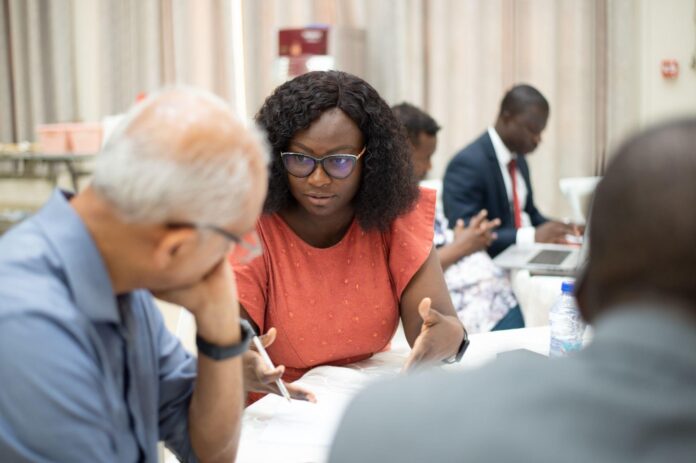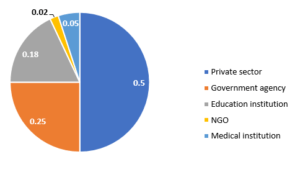
The Centre for Applied Research and Innovation Supply Chain, Africa at KNUST is moving to adopt workable policies and researched-based approaches to bridge the current gap between industry and academia.
To achieve this, the centre has submitted a request to the university authority to replace the current thesis as a requirement for postgraduate students with an applied interdisciplinary research project matched with the respective industry organisations.
The KNUST School of Business is also considering the acceptance of inviting stakeholders who may include industry practitioners, entrepreneurs, alumni and civil society organisations to multiple engagement sessions as part of course content development.
These are part of the strategies to make sure that postgraduate students who go out of the university better appreciate the rudiments of the job market as well as the practicalities of the course of study.
To better achieve the objective of bridging the gap between industry and academia, CARISCA intends to develop business cases for students to provide insights into the real-world challenges and trends of development in local industries.
Also, to ensure the full implementation of the afore-mentioned strategies and for optimum impact, CARISCA has supported KNUST School of Business to create a career services office to help students find good jobs upon graduation.
These and more were contained in an alumni survey report put together by the Centre for Applied Research and Innovation Supply Chain, Africa (CARICSA) located at the Kwame Nkrumah University of Science and Technology, KNUST.
The university is committed to adopting the afore-mentioned changes and strategies to create more interconnected, advanced, and innovative learning opportunities for students. These are insights from the survey which CARISCA would continue to administer every year.
The primary objective of the alumni survey was to assess the mid- to long-term outcomes of business school graduates in the Ghanaian workforce, measure their job satisfaction, and identify opportunities for improving students’ experience at KNUST.
In some feedback provided in the survey report, students want to be more engaged in hands-on learning opportunities, such as through internships, applied projects, field trips and networking opportunities during their studies.
The report further states that students want to undergo training in essential skills, such as data analytics, writing and communication, industry-specific computing, gaining international exposure as well as participating in seminars on leadership, life after school, and entrepreneurship as a way of bridging their academic experiences with industry.
Survey methodology & findings
Trained field workers at the KNUST School of Business administered questionnaires to 1,058 alumni who were initially contacted by phone or email. A total of 309 usable responses, constituting 29.21 percent effective response rate, were received by the end of the survey.
Alumni participants were predominantly men – 77 percent – who had completed undergraduate degree programmes from KNUST.
Respondents were graduates from one of the four departments in the Business School: Accounting and Finance (A&F) – 33 percent, Supply Chain and Information Systems (SC&IS) – 33 percent, Marketing and Corporate Strategy (M&CS) – 19 percent, Human Resource and Organisational Development (HROD) – 16 percent.
The job outcomes show that 56 percent are full-time employees – 58 percent for males and 47 percent for females – working for at least 31 hours per week.
Compared by departments, 65 percent of the alumni from HROD, 63 percent from A&F, 49 percent from SC&IS, and 47 percent from M&CS departments had full-time employment.
Exactly half – 50 percent – of the alumni work in the private sector whereas 25 percent work in government agencies.
Twenty-four percent of the employed alumni had engaged in an internship programme with their employer while studying at KNUST. Among the employed alumni, 54 percent indicated that their jobs are closely related to their field of study, and 44 percent work in leadership positions. Overall, more than half of the participants indicated they were satisfied with their respective jobs. While the majority of alumni are in employment, about 12 percent are self-employed.

The alumni survey is one of CARISCA’s efforts to create an inclusive environment that strengthens long-term trust and collaboration between universities and other development actors. KNUST also wants to use this information to be more accountable for students’ satisfaction and successes by systematically following up and measuring their success after graduation.









